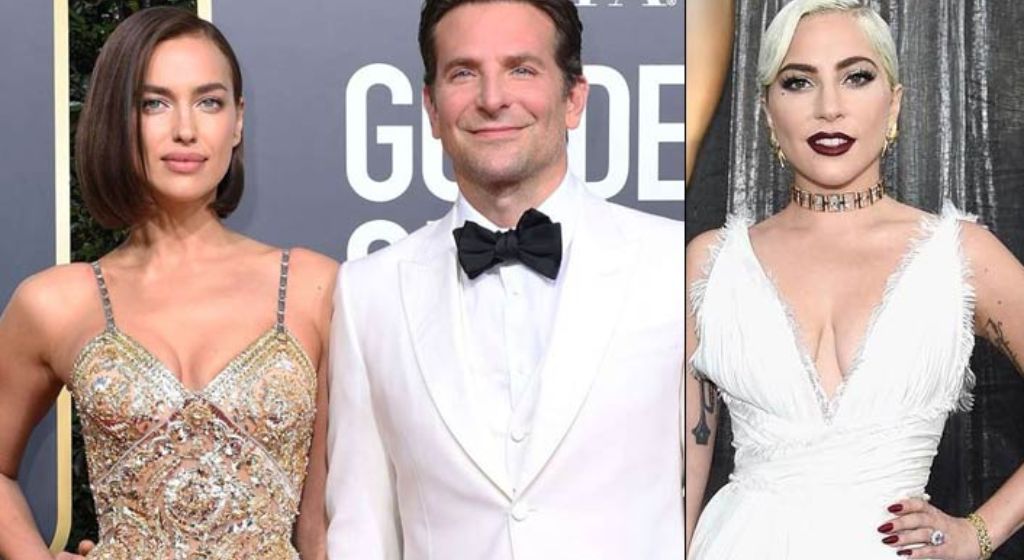On 6 June, Bradley Cooper and Irina Shayk confirmed their breakup after four years together. They are working peacefully on co-parenting their daughter, Lea De Seine. The announcement was brief, and no further comments were offered. Despite this, media outlets spun the minimal news into lengthy features.
This quiet and respectful separation is not unusual. Not all relationships end in dramatic chaos—some simply run their course. Sometimes love fades not from betrayal but from growing apart. Such endings require maturity, not drama.
Yet, the public often expects more from celebrity breakups. Cooper, fresh from the romantic high of A Star Is Born, became a prime target. Many fans are convinced he’s deeply in love with co-star Lady Gaga.
Social media was immediately ablaze with fantasies of Cooper and Gaga becoming a real couple. Many saw their live Oscar performance as undeniable proof. People began counting down to an announcement that, frankly, was never coming.
This isn’t new. When Gaga ended her engagement to Christian Carino, the response was similar. Fans assumed Cooper and Gaga would finally unite. Their hope had little regard for Cooper’s relationship with Shayk at the time.
These reactions reveal a recurring issue with celebrity culture. Fans feel entitled to turn fiction into reality. Every time a star couple breaks up, another gets ‘shipped’ into existence—without evidence or consent.
Brad Pitt and Marion Cotillard experienced similar rumors after Allied. When Pitt and Jolie split, Cotillard was falsely accused of having an affair. She issued a rare public statement to clear the air and defend her family.
Cotillard emphasized her happy relationship with her long-time partner and denied all rumors. She expressed sympathy for Pitt and Jolie during their difficult time. But she also criticized the media’s quick judgment and invasion of privacy.
Jennifer Lawrence was similarly caught in baseless speculation. Rumors of an affair with her Passengers co-star Chris Pratt hurt his then-wife, Anna Faris. Even though Lawrence had nothing to do with the couple’s issues, gossip took a toll.
Faris opened up about feeling embarrassed and hurt by the false stories. Though she never blamed Lawrence, the media coverage still damaged her confidence. It shows how harmful public speculation can be, even when completely unfounded.
Fans of Game of Thrones also turned fiction into fantasy. Kit Harington and Emilia Clarke were expected by fans to be together in real life. Despite Harington being married to Rose Leslie, fans accused her of not supporting him during tough times.
This behavior shows how far public obsession can go. Leslie was unfairly criticized just for living her life. Fans imagined Clarke as the “better” partner because of her on-screen role, ignoring reality.
So why are fans so obsessed with Cooper and Gaga being more than friends? Their bond in A Star Is Born felt real, and their interviews show deep mutual respect. But both have stated clearly that their connection is platonic.
Gaga herself explained the performance at the Oscars was just that—performance. She and Cooper wanted the audience to believe in the love story. But that doesn’t mean their personal lives mirror the script.
Cooper has also praised Gaga’s sincerity and artistry. Their relationship is based on creative trust and emotional vulnerability. That should be celebrated on its own merit, not twisted into romance.
The belief that men and women can’t be close friends without romantic involvement is outdated. Gaga and Cooper’s bond shows that meaningful friendships between genders are possible and powerful.
Psychotherapist Paul Hokemeyer believes their dynamic sets a positive example. It’s a model of emotional intimacy without sexual tension. It emphasizes respect, trust, and mutual growth.
In a post-#MeToo world, relationships like theirs matter. They show that deep emotional connections can be built on equality. There’s beauty in a supportive friendship that doesn’t conform to romantic expectations.

And really, why should Lady Gaga’s relationship status be headline news? She is an artist, activist, and cultural icon with a legacy far beyond who she’s dating. Reducing her identity to a potential girlfriend is insulting.
Gaga has used her platform to advocate for survivors, the LGBTQ+ community, and chronic illness awareness. Her career is filled with groundbreaking performances and bold statements. She deserves to be recognized for her impact.
From her meat dress to her advocacy at the Oscars, Gaga consistently challenges norms. She uses fame as a tool to create conversation and promote change. Her achievements eclipse any romantic subplot.
It’s frustrating to see her brilliance sidelined by tabloid-style curiosity. Gaga’s talent, activism, and ambition should be front and center—not her dating life. She’s earned more than being cast in someone else’s fantasy.
And for those still clinging to the idea of Gaga and Cooper uniting, they should revisit the actual plot of A Star Is Born. The film ends in heartbreak and tragedy—not romance. Cooper’s character, Jackson, is not a fairy-tale partner.
As Ally’s fame rises, Jackson spirals into addiction and despair. His final act is devastating, not loving. The story is a cautionary tale about mental health and the limits of love to save someone.
The movie does not offer a neat resolution or a happy ending. It leaves viewers with a painful but important truth: sometimes love isn’t enough. And that’s exactly what makes the story powerful.
Fans who demand a real-life version of the film’s love story miss its core message. It’s not about romance—it’s about struggle, loss, and personal growth. Wanting a sequel with a happy ending undermines its message.
In trying to rewrite the narrative of A Star Is Born, fans ignore its painful reality. Jackson’s suicide is not romantic. It’s a tragic consequence of untreated illness and deep personal pain.
If we truly understood the film, we wouldn’t wish that outcome on Cooper or Gaga. Instead, we’d admire their ability to portray such raw, difficult emotions. And we’d celebrate the strength it takes to leave the story on screen.
Cooper and Gaga gave us a beautiful, heartbreaking performance. But it was fiction, and it should stay that way. Their real lives are not ours to write.
We should respect their boundaries and honor their truths. Not every great performance needs a real-life echo. Sometimes, art is enough.
In the end, our obsession says more about us than about them. We crave love stories because they offer hope and closure. But real life doesn’t always work like that.
Let’s allow celebrities to be human, with privacy, respect, and dignity. Let’s celebrate friendships, not just romances. Let’s honor art without demanding real-life reenactments.
Lady Gaga and Bradley Cooper deserve admiration for their talent, not our projections. Their bond is powerful as it is. And that should be more than enough.

